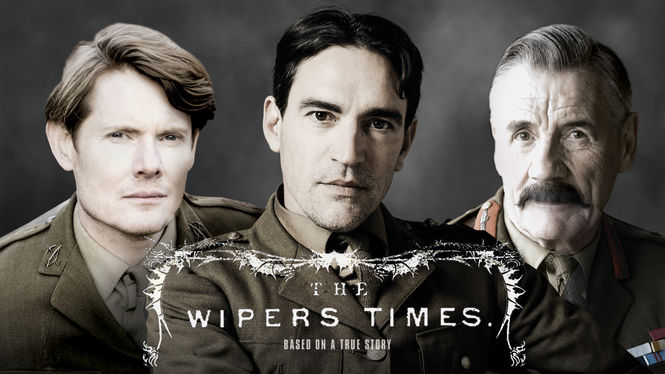Victims of Optimism: The Wipers Times

Following on from last week's post about 1917 and lots of general discussion I've seen recently about war films and their value to both history and cinema, I this week decided to re-watch my all time favourite First World War film, The Wipers Times.
This BBC made-for-television film is relatively unremarkable. Its low budget special effects leave much to be desired and its portrayal of the trenches is far from what an expert would consider to be accurate or realistic. It also doesn't try to do anything ground-breaking in terms of narrative or cinematography. There's definitely no stunning battle sequences here.
Yet it remains a film that I love and one to which I return repeatedly. Based on the true story of the 12th battalion Sherwood Foresters' trench newspaper, The Wipers Times follows the story of the soldiers who wrote and published the paper while on service initially in Ypres and then elsewhere on the Western Front.
The beauty of the film for me is in its humour. The original Wipers Times was a comedic take on the experience of soldiers, filled with spoof advertisements, funny articles and entertaining rhymes.The film brings these to life, with mini-skits enacting the brilliant inventions of the "Tip-me-up Duckboard" for ejecting senior officers out of the trench, or the two-in-one 'umbrella and wire-cutters', designed to make trench work more pleasant!
While the serious side of war is evident in the film, it is this focus on the humour of everyday life and the black humour of the trenches that make it so great. A particular favourite is the sketch which questions 'Are you a victim of optimism?', promising the cure for those who 'suffer from cheerfulness'.
Such cynical humour was typical for the soldiers of the First World War and that it what I really like about The Wipers Times: it offers an insight into the minds of the men during the war, addressing the mundane and minor points between the excitement of fighting. 1917 also went some way to showing this, with the continuous shots offering the viewer those moments when the soldiers were just making small talk to each other and sharing the trivialities of life.
Captain Roberts explains the significance of the trench newspaper in The Wipers Times, saying that it's 'important to me because it's not important'. Stood in a rainy trench, this makes a lot of sense. Amid the suffering of war and the seriousness of their work, the men needed something light-hearted and trivial to occupy their minds. It's a very self-aware moment, yet does speak to the film's own significance, celebrating the human spirit and the ability to make light of even the worst situation. Even when there's the threat of being 'blown to buggery', they remain cheery enough to ask 'is that anywhere near Poperinghe?'
I think many interpretations of the First World War could learn a thing or two from it, in remembering that the years 1914-1918 were not all death and despair, but were also formative years for a generation of men, bringing great opportunities for humour and creativity even amid the harshest realities of life.
Kathryn
The Wipers Times is available to stream on Amazon Prime, or for purchase on BBC DVD.


No comments: